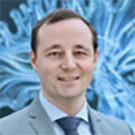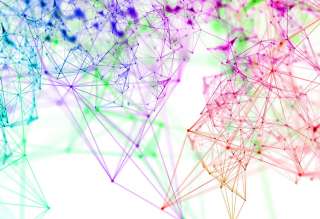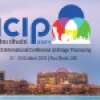SPS BSI Webinar: Can the Human Connectome guide Brain Stimulation?
Date: 26 April 2024
Time: 1:00 PM ET (New York Time)
Presenter(s): Dr. Andreas Horn
Meeting information:
Meeting number: 2632 908 9266
Password: xZExvAPw723 (99398279 from phones and video systems)
Join by phone:
+1-415-655-0002 US Toll
Access code: 263 290 89266
Join us Friday, April 26th, 2024, at 1:00 PM ET for an exciting virtual talk by Dr. Andreas Horn entitled: "Can the Human Connectome guide Brain Stimulation?" as part of the activities of the Brain Space Initiative, co-sponsored by the Center for Translational Research in Neuroimaging and Data Science (TReNDS) and the Data Science Initiative, IEEE Signal Processing Society.
Abstract
Invasive and noninvasive brain stimulation methods are applied to focal points in the depth or on the surface of the brain. However, their focal application leads to network effects that are distributed across the entire brain. We can study network effects of focal brain stimulation by pairing them with the human connectome. By doing so, we may investigate which networks need to be stimulated to observe a specific effect. Moreover, we can use brain stimulation sites to segregate the human connectome into functional networks, each tied to specific behaviors, clinical signs or symptoms. One particularly useful method is deep brain stimulation, an invasive neurosurgical procedure that applies highly localized but strong stimulation signals onto specific subcortical areas.
In this talk, I will review connectomic effects of deep brain stimulation and other brain stimulation methods. We will cover results in diseases ranging from the movement disorders spectrum (Parkinson’s Disease, Dystonia, Essential Tremor) to neuropsychiatric (Tourette’s & Alzheimer’s Disease) and psychiatric (Obsessive Compulsive Disorder, Depression) diseases. I will also demonstrate how findings in seemingly different diseases (such as Parkinson’s Disease and Depression) could be transferred to cross-inform one another and how the same method can be used to study neurocognitive effects, such as risk-taking behavior or impulsivity.
Biography

Andreas Horn received an MD from Freiburg University and a PhD from Charité Berlin. He is Associate Professor for Neurology at Harvard Medical School and the director of deep brain stimulation research within the Center for Brain Circuit Therapeutics at Brigham & Women’s Hospital in Boston. He is further affiliated with the Massachusetts General Hospital in Boston and Charité Berlin.
His lab studies how focal neuromodulation impacts the human connectome to refine clinical treatments for neurological and psychiatric disorders. A key question is which networks should be modulated for improvements of specific symptoms – in disorders such as Parkinson’s Disease, Obsessive Compulsive Disorder, Depression, or Alzheimer’s Disease. Further, the lab develops methods to segregate the human connectome into functional domains by combining brain stimulation with functional and diffusion-weighted MRI.












